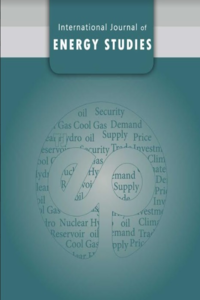
The Middle East is home to 65% of OPEC’s oil reserves and, with 32 million b/d, provides just over a third of the global oil supplies. Since 2014, the group of GCC (Gulf Cooperation Council) countries, lead by Saudi Arabia, had seen a worldwide oversupply send prices lower and reduce revenues to government budgets.1 Defending and expanding market share had been the primary goal of the low-cost Middle Eastern states with the aim to squeeze potential rivals in Russia and the Americas out of the game. However, in a classic case of prisoner’s dilemma, price wars resulted in loss-making for all producers.2 Aside form deep budget deficits, low prices induced demand surge for motor vehicles around the globe that undermined efforts for resource diversification. Persistent global warming due to human-induced greenhouse gas (GHG) emissions created a much gloomier issue with long-term repercussions than merely regional political dynamics, necessitating cooperation and immediate action. The global economic slowdown and the accompanying slump in oil prices dragged down growth in oil exporting countries of the Gulf. Faced with fast depleting sovereign reserves, which were saved as cushion to weather turbulent times, lead oil producers of the Gulf announced new measures such as abandonment of capital-intensive infrastructure projects, cost-cutting, introduction of the VAT, and far-reaching reforms such as privatization, diversification and removal of subsidies to fight fiscal deficits. Of special concern was Saudi Arabia’s exposure to persistent low oil prices creating an ever growing burden on the kingdom’s finances that are spread thin over efforts to sustain foreign aid and proxy warfare in as far afield as Syria, Iraq, Yemen, and Libya. On top, Iran’s nuclear accord with the P5+1 and the subsequent prospect to grow, expand and dominate the Gulf monarchies forced policymakers of the region to rethink their strategy and consolidate their positions against a rising rival power. Pragmatism has prevailed and paved the way towards a well-coordinated effort to provide breathing space to oil producers of the Gulf at an international summit in 2016. In accordance with market expectations, the November 2016 OPEC summit in Vienna concluded with a cornerstone deal at the last minute that reversed the cartel’s long-held policy of defending market share over oil prices. The agreement to curb output by 1.2 million b/d within six months, the first since 2008, took effect in January 2017 with crucial non-OPEC producers such as Russia and Mexico joining to shoulder an additional output cut of 600,000 b/d, reaching a total of 1.8 million b/d. Iran has been permitted a symbolic increase on its quota forecasted for growth in 2017, thus giving a signal that OPEC is still credible and relevant,3 surging oil prices above the $50 pb level. Reports have confirmed that most member parties reliably comply by their commitment4 to clear the enormous supply overhang accumulated over years, although doubts remain about the contribution of non-members, crucially of Russia. EIA’s short-term energy outlook for 2017 projects $53-$55 oil price for Brent and WTI crude,5 which are yet lower than the fiscal break-even price of the Gulf countries.

| Relevant Articles | Author | # |
|---|
| Article | Author | # |
|---|